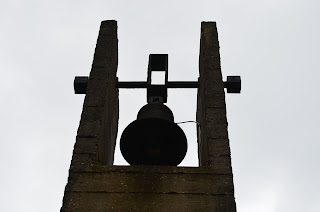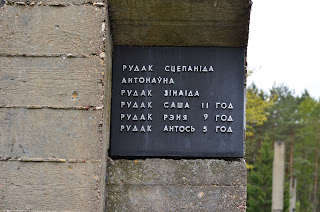I
started Grammar School two days before my twelfth birthday. Everyone else in my
class was at least a year younger than me. Not only that, I discovered that
there were 191 other people in my year as opposed to 90 in the other years. I
was a post war boom baby.
I
was quite proud when I learned I had gained a place at the school, so was my
father, I think. I say I think because he was looking after a 16 year old
daughter, me and my four year old brother, and his wife had died three months before. Bit of a hard time to be as
enthusiastic as I was.
Because
of the numbers in my year the classes were graded from A to F. I was placed in
class F. It wasn't until the end of the third year and start of the fourth year
that I discovered that the teaching staff considered that this stood for
Failure, and from the start treated and taught us as such. What a bunch of
idiots they were, and I don't mean that in a nice way. There were exceptions.
The maths teacher was infinitely patient. The biology teacher was brilliant.
The music teacher had the patience of a saint. The Geography and French
teachers ruled with a rod of iron, but fairly.
The
last of the two English teachers I had was a complete and utter tosser. On the
very last time I went into school to collect my final examination results ( a
miserable one pass and five near misses and one complete failure) I bumped into
him. I walked up to him and very pleased with myself told him that the one pass
I had achieved was in English. He said, 'Yes, I know. It's because of the
ridiculous system in this school that allowed you to pass and others far more
worthy to fail that I am leaving teaching.' I was so upset by his words I could
say nothing at all and watched his fat little arse waddle away down the
corridor.
It
was quite a shock to leave school. I had never given it much thought. Felt it
would go on forever. Obviously I knuckled down to try and find a job. Along
with the several other thousand of kids of my age who had also finished their
education that year. Not an easy task.
I
the space of a month I applied for fourteen jobs and had one interview. I
didn't get the job, it went to a friend of the managers son, a lad I knew from
school. I felt very aggrieved as I knew I was more capable of doing the job
than he was, but it taught me a lesson. It ain't what you know, it's who you
know. My next application was for the position of Police Cadet within my local
Police force. There were 83 applicants, so I discovered, and one position. No
chance. However, I put my best jacket and trousers on and a collar and tie and
presented myself as instructed for a written examination, three of them in fact
in one day. Not hard really, and I was one of about 35 who were whittled down.
I
had then to write an essay and leave it with the officers managing the
interview process and told I would be getting a letter telling me whether or
not I would proceed to the next part of the interview process. I got the letter
the following week requesting the attendance of my body for further interviews.
I went and had to sit yet another two written exams and we were cut down to
ten.
The
ten of us sat in a large bare wooden floored gymnasium waiting and sweating for
the results. Five of us were asked to remain in the room and the others were
given the heave ho. Over the next two hours we were cut down to three, and I
was one of them. Thinking and worrying that the final part of the interview
process was upon us I, along with the other two started to really sweat. You
could smell it in the gym, even though it was a big room.
The
following week the three of us attended for our final interview by the Chief
Constable and three members of the Watch Committee. (the Watch Committee was a
local government committee responsible for the Police and Fire services of the
town.) When it came to my turn I was ushered into the large corner office of
the building which housed the Chief Constable. Imposing. Corner office
overlooking a pleasant town centre road, floor to ceiling windows on two sides
and half a mile of carpeting to walk along from the entrance door. When I had
sat down and the oldest of the three very old Aldermen had put me at my ease,
one of the men suddenly said to me, 'Are you Stanley Catherall's lad?'
'Yes
sir,' I replied. He smiled and leaned back in his chair.
'I'm
Alderman Booth. Your uncle Fred's brother. He's only recently retired from the
force hasn't he?'
'Yes sir,' I replied, suddenly
placing the face of the man. I had seen him at my uncle's house once or twice
before.
'Make
sure you remember me to your dad will you David? He's been through a rough time
recently hasn't he?'
I
nodded my head silently. He smiled warmly at me and then made a note on the
papers in front of him. 'Shall we start
then gentlemen?' he said.
Guess
who got the job? Me!
So,
Mr English teacher. Up yours pal!

























